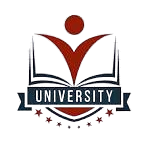Australia’s top universities are renowned for their academic excellence, cutting-edge research facilities, and vibrant campus communities. Institutions like The University of Melbourne, The Australian National University (ANU), The University of Sydney, The University of Queensland (UQ), and The University of New South Wales (UNSW) attract students from around the globe seeking world-class education and diverse learning opportunities. Excelling academically at these prestigious universities requires strategic planning, dedication, and effective study habits. This comprehensive guide will provide you with insights, tips, and strategies to thrive academically and make the most of your educational journey at Australia’s top universities.
Why Choose Australia’s Top Universities?
Studying at Australia’s top universities offers numerous benefits:
- Academic Reputation: These universities consistently rank among the best globally, recognized for their high-quality education, research output, and faculty expertise.
- Diverse Learning Environment: Experience a multicultural campus community that fosters cultural exchange, collaboration, and global perspectives.
- Research Opportunities: Engage in groundbreaking research projects across various disciplines with access to state-of-the-art facilities and resources.
- Career Prospects: Gain competitive edge in the global job market with degrees from internationally recognized institutions.
Strategies for Excelling Academically
1. Set Clear Goals and Prioritize
- Establish Clear Objectives: Define your academic goals and career aspirations. Set short-term and long-term goals to guide your academic journey.
- Prioritize Tasks: Develop a study schedule to manage your time effectively. Allocate time for lectures, study sessions, assignments, and extracurricular activities.
- Stay Organized: Use planners, apps, or digital tools to organize tasks, deadlines, and study materials.
2. Engage Actively in Classes
- Attend Lectures and Tutorials: Actively participate in lectures, tutorials, and seminars. Take notes, ask questions, and engage in discussions to deepen your understanding of course materials.
- Review and Revise: Regularly review lecture notes and course materials. Summarize key concepts, create study guides, and use active recall techniques to reinforce learning.
3. Develop Effective Study Habits
- Create a Study Environment: Establish a conducive study environment free from distractions. Find a quiet space with good lighting and ergonomic seating.
- Practice Regular Study Sessions: Schedule consistent study sessions to maintain momentum and retention of information.
- Utilize Resources: Make use of university libraries, online databases, academic journals, and study groups to enhance your learning experience.
4. Seek Academic Support
- Utilize Faculty Office Hours: Attend faculty office hours to seek clarification on course materials, discuss assignments, and receive academic guidance.
- Peer Tutoring: Take advantage of peer tutoring programs or study groups to collaborate with classmates and exchange knowledge.
- Access Student Services: Utilize academic support services offered by the university, such as writing centers, tutoring centers, and academic workshops.
5. Embrace Research Opportunities
- Explore Research Initiatives: Engage in research opportunities offered by faculty members or research centers. Participate in research projects aligned with your academic interests.
- Develop Research Skills: Enhance your critical thinking, problem-solving, and analytical skills through research activities. Present research findings at conferences or publish in academic journals.
6. Balance Academics and Well-being
- Maintain Balance: Prioritize self-care, exercise, and social activities to maintain overall well-being. Balance academic commitments with relaxation and stress management techniques.
- Seek Support: Access mental health services, counseling, and wellness programs provided by the university to support your emotional and psychological well-being.
Tips for Academic Success
- Set Realistic Expectations: Manage academic workload by setting realistic goals and expectations for yourself.
- Stay Motivated: Find intrinsic motivation by connecting your academic pursuits with your personal interests and long-term career goals.
- Stay Updated: Stay informed about academic policies, deadlines, and curriculum changes through university communications and faculty advisors.
- Network and Collaborate: Build relationships with peers, faculty members, and industry professionals to expand your academic and professional network.

Conclusion
Excelling academically at Australia’s top universities requires dedication, perseverance, and effective study strategies. By setting clear goals, prioritizing tasks, actively engaging in classes, developing strong study habits, seeking academic support, embracing research opportunities, and maintaining a healthy balance, you can maximize your academic potential and achieve success in your chosen field of study. Remember to leverage university resources, seek guidance from faculty mentors, and seize opportunities for personal and professional growth. With determination and proactive approach, you can thrive academically and make the most of your educational experience at one of Australia’s leading universities.
FAQs:
1. What are the key factors contributing to academic excellence at Australia’s top universities?
Academic excellence at Australia’s top universities is influenced by rigorous academic standards, research opportunities, faculty expertise, diverse learning environments, and access to state-of-the-art facilities and resources. These factors contribute to a rich educational experience that prepares students for future career success.
2. How can I effectively manage my time to excel academically?
Effective time management involves setting priorities, creating a study schedule, breaking tasks into manageable chunks, and balancing academic commitments with personal activities. Utilize tools such as planners or apps to organize tasks, set deadlines, and track progress.
3. What are some effective study strategies to enhance academic performance?
Effective study strategies include active engagement in classes, regular review of course materials, using mnemonic devices and visual aids, practicing active recall, joining study groups for collaborative learning, and seeking clarification from professors or tutors when needed.
4. How can I access research opportunities at Australian universities?
To access research opportunities, students can connect with faculty members, research centers, or academic departments within their field of interest. Participate in research projects, internships, or volunteering opportunities that align with your academic goals and career aspirations.
5. What academic support services are available to students at Australia’s top universities?
Australian universities offer a range of academic support services, including tutoring centers, writing labs, academic advising, peer mentoring programs, and workshops on study skills and time management. These services aim to assist students in achieving academic success and overcoming challenges.
6. How can I maintain a healthy balance between academics and personal well-being?
Maintaining a healthy balance involves prioritizing self-care, setting boundaries, engaging in physical activity, pursuing hobbies, and seeking social support from friends and family. Universities also provide wellness programs, counseling services, and recreational activities to support students’ overall well-being.
7. What should I do if I experience academic challenges or difficulties?
If you encounter academic challenges, reach out to professors, academic advisors, or university support services for guidance and assistance. They can provide academic resources, recommend strategies for improvement, and help you navigate any academic hurdles you may face.
8. How important is networking and building relationships with peers and faculty?
Networking and building relationships are crucial for academic and professional growth. Networking allows students to exchange ideas, collaborate on projects, access career opportunities, and receive mentorship from faculty members and industry professionals.
9. What role does extracurricular involvement play in academic success?
Extracurricular involvement enhances academic success by developing leadership skills, fostering teamwork, expanding social networks, and providing practical experience relevant to future careers. Participation in clubs, student organizations, and volunteer activities enriches the university experience and complements academic learning.
10. How can international students adapt to studying at Australia’s top universities?
International students can adapt by attending orientation programs, familiarizing themselves with campus resources and support services, improving English language skills if necessary, exploring cultural exchange opportunities, and seeking guidance from international student advisors or mentors.

Conclusion
Excelling academically at Australia’s top universities requires commitment, effective study strategies, utilization of academic resources, and maintaining a healthy work-life balance. By leveraging university support services, participating in research opportunities, building relationships, and engaging in extracurricular activities, students can maximize their academic potential and thrive in their educational journey. Remember to seek guidance from faculty mentors, take advantage of available resources, and pursue personal growth opportunities to achieve academic excellence and prepare for future success in your chosen field.

